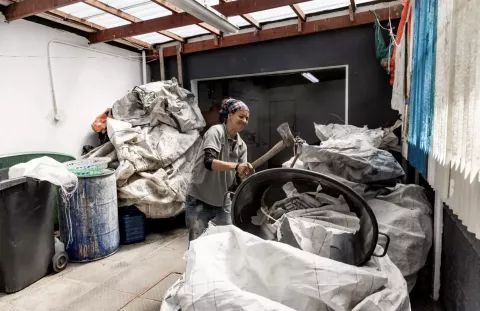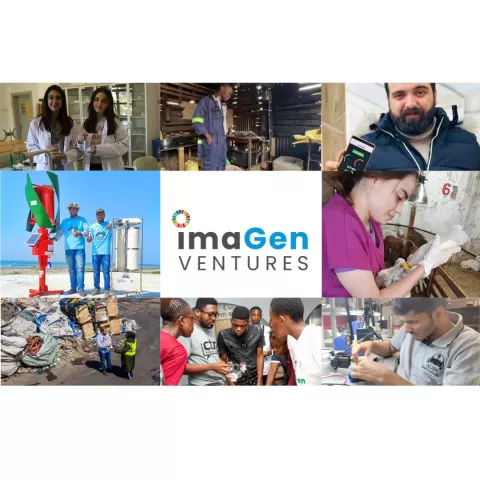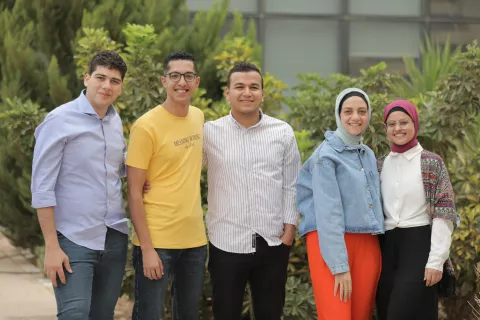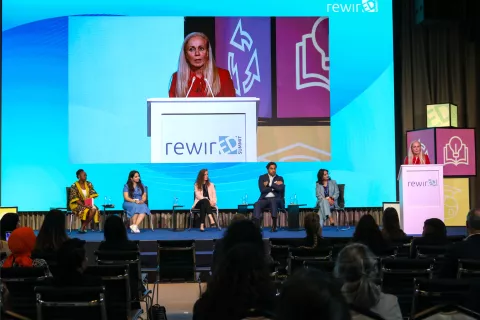The Critical Role of Green Skills for Net-Zero Amidst the 'Polycrisis': Takeaways from Davos 2023
With green skills set to become a global challenge to reaching climate goals, the decisions we make today to skill young people for the green transition will shape the future of the planet. Get our key takeaways from the Davos Summit 2023.
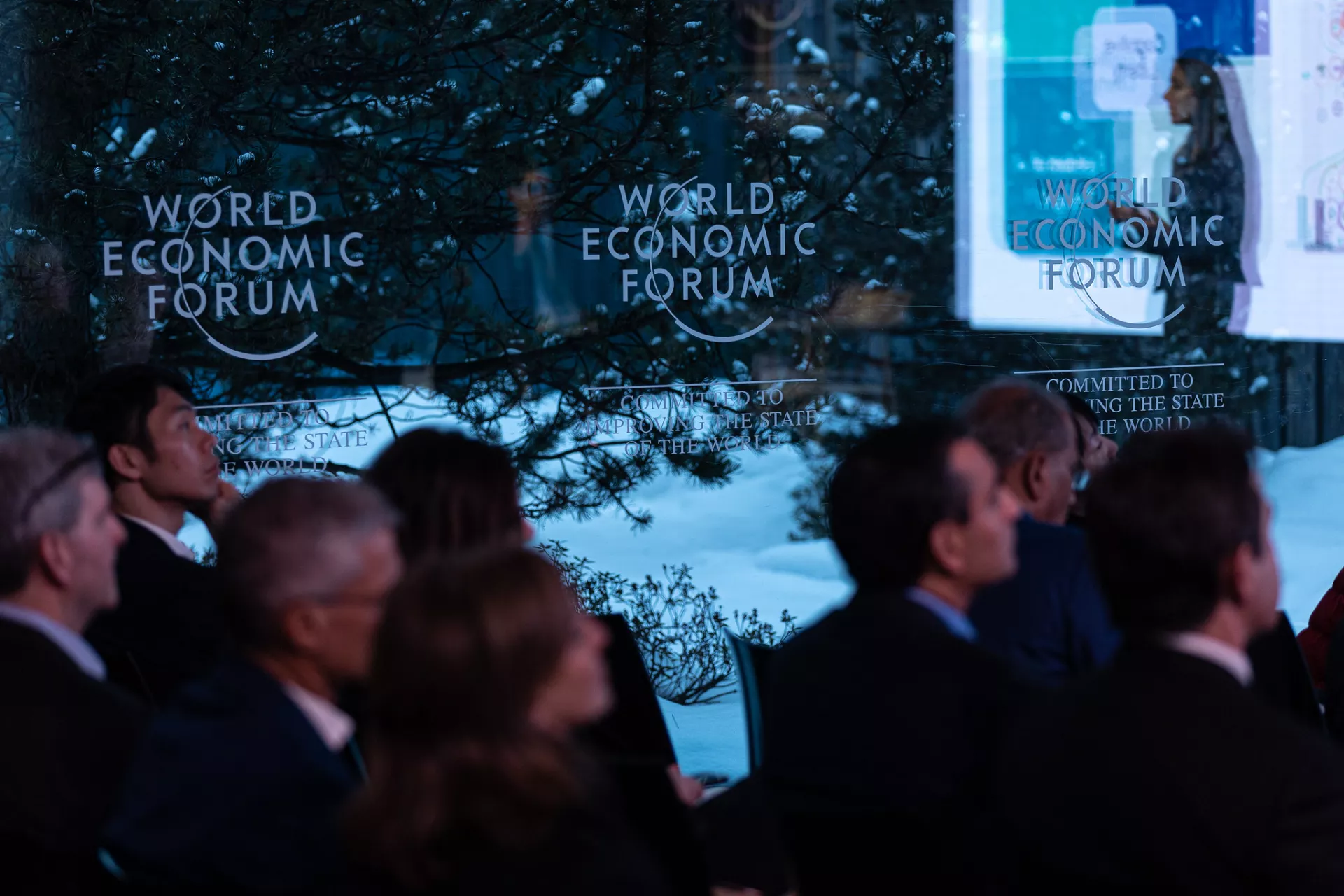
The World Economic Forum convened its 53rd Annual Meeting in Davos this January, bringing together political, business, and other influential leaders from around the world to chart a course forward in the face of an unprecedented number of crises that threaten global stability.
The world is facing a “Polycrisis”—a storm of climate change, economic instability, rising food prices, food insecurity, geo-economic fissures, and social unrest. These crises are systemic, interconnected risks that compound and amplify each other such that the resulting global challenge surpasses the individual effects of each crisis.
“Concurrent shocks, deeply interconnected risks and eroding resilience are giving rise to the risk of polycrises – where disparate crises interact such that the overall impact far exceeds the sum of each part,” state the authors of WEF’s Global Risks Report 2023. “Compounding crises are widening their impact across societies, hitting the livelihoods of a far broader section of the population, and destabilizing more economies in the world.
More than half of the top global risks that make up the polycrisis according to WEF are climate-change related—a long-term global risk the world remains least prepared for, and which reflects the narrowing window to limit global warming to 1.5°C.
Appropriately, a central theme of the discussions in Davos was climate change and its related issues, including decarbonization, curbing emissions, climate litigation, energy security and clean energy, climate mobilization, AI for climate adaptation, and achieving an equitable green transition.
Yet, despite challenges the challenges that lie ahead, there was a significant bright spot with the launching of Giving to Amplify Earth Action (GAEA) by WEF together with more than 45 partners. GAEA will channel philanthropic capital to generate $3 trillion each year from public-private partners to finance climate action, combat nature loss, and revitalize biodiversity by 2050.
“Philanthropies can play a unique role in encouraging urgent, radical and unprecedented collaboration between the public and private sectors,” said Per Heggenes, CEO of Ikea Foundation and GenU GLC Member.
GAEA will build on previous successes such as the Clean Cooling Collaborative, which has mobilized over $600 million in finance to improve low-carbon cooling access and reduce CO2 emissions. The focus on new approaches to public-private partnerships and philanthropy to channel vital resources toward climate change is a major development for improving the existing inefficient climate financing models and putting the world on track towards 1.5C warming and net-zero by 2050.
Green Skills as the Bottleneck to a Net-Zero Future
Importantly, the discussions also focused on the urgent need to build green skills for the green transition. Launched live from Davos, PwC’s 26th Annual Global CEO Survey showed that global leaders cited skills shortages and technology disruption among the forces most likely to impact their business over the next ten years. The report showed that as the private sector faces significant challenges, CEOs must lead with intention and make their business a driver of solution-focused collaboration for the long-term.
Co-founder and Vice President of Product Management at Linked-In, Allen Blue showed that the demand for green skills is accelerating, with approximately 60-70% of jobs set to experience modification to transition to a non-carbon economy.
“While [lack of green skills] is not a bottleneck that is strongly slowing the carbon transition right now, in a few years, it will be a bottleneck,” said Blue, showing that the demand for green skills is already outpacing its supply.
Julia Sweet, Chair and CEO of Accenture also recognized that “there aren’t enough skills in the world that we need,” in a separate panel on the future of jobs, adding that there is an urgent need for reskilling at scale through technology.
As green skills become an increasingly urgent global concern for achieving climate goals, the decisions we make now about equipping youth with the necessary skills will have a profound impact on the fate of the Earth.
Indeed, as we recently discussed in ‘the net zero generation’ together with PwC, the net zero transition requires upskilling at scale or the world will face severe bottlenecks towards net-zero and climate resilience.
Putting Green Skills at the Heart of the Transition
It is clear that the climate crisis and the skills crisis are twin challenges that cannot be addressed separately. Green skills must be placed center stage if we are to succeed in the fight against the climate crisis and realize net-zero. But is the world prioritizing green skills enough? As it stands, the answer is no.
Less than 40% of National Climate Strategies reference skills training and fewer than 30% reference climate change education. Some 90% of climate financing is dedicated to renewable energy, sustainable transport, and energy-efficiency, leaving marginal amounts for education and skills training.
If current trends continue, analysis from the World Skills Clock suggests that more than 60% of young people, or 830 million, will lack the basic skills that will be required in 2030.
A failure to equip the next generation with green skills will result in a population unable to participate in the green economy and incapable of changing behavior critical to reaching net-zero, widening inequalities and exacerbating vulnerability to the impacts of climate change.
At Generation Unlimited, we have been advocating together with public-private-youth partners that the global skills crisis will be a major obstacle in the way of net-zero, keeping millions of young people from participating in the green economy.
No single sector alone will be able to advance green skills at the magnitude we need to build a green future; it will require collaboration and partnerships across multiple sectors—a whole-of-economy approach. We need to harness the public sector’s reach and ability to enforce green policies with the private sector’s innovation and efficiency. And most importantly, we must tap into the energy and creativity of young people, who have a deep understanding of the challenges they face and the motivation to create effective solutions.
This is why we are focusing on building public-private-youth partnerships to scale up green skills and job opportunities for youth and empower them to protect our planet. Through global programs such as imaGen Ventures, Be Green, the Green Jobs For Youth Pact, and the Global Volunteer Initiative, implemented together with public, private, and youth partners, GenU is working to equip young people with green skills and connect them to opportunities for green entrepreneurship, employment and social impact opportunities.
Building on the recommendations of ‘the net zero generation’, a crucial starting point for governments is to include upskilling in their Nationally Determined Contributions (NDCs) as a key aspect of their climate action plans. Governments need to prioritize upskilling and develop skills training strategies targeting industries essential to reaching net zero, such as energy, construction, transport, and agriculture. They must also develop policies fostering green jobs, with a focus on green curricula and youth entrepreneurship.
On the other hand, the private sector must emphasize the creation of new green jobs, the greening of existing jobs, and the development of programs supporting youth entrepreneurs. Businesses must also prioritize upskilling in their net zero planning, including both direct and indirect emissions in their supply chain. You can find our full list of recommendations here.
We’re calling for bold steps towards a green and inclusive future through public-private-youth partnerships—with skills as the core currency.
Be a part of the movement - join Generation Unlimited now in our quest to unlock the full potential of the next generation and ignite the change our world so desperately needs. Email us at info@generationunlimited.org or reach out to us on LinkedIn or Twitter.

